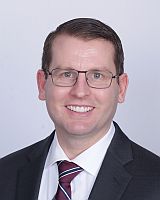
Genitourinary Fellowship
ABOUT THE GENITOURINARY FELLOWSHIP
The University of Utah Urology Department offers a competitive Genitourinary Medicine Fellowship with one fellow position open per year. This is a unique and innovative fellowship that started in 2021 and is meant for Family Medicine and Internal Medicine residency graduates. This one-year Genitourinary Medicine Fellowship will provide advanced training in the diagnosis and treatment of a breadth of urologic pathologies, with a focus on general urologic specialization. Fellows will work closely with our dynamic group of urology-attending physicians across many different urologic subspecialties.
Fellowship positions: One per year
Duration: One year, Flexible start dates
Location: University of Utah Hospitals
ATTEND THE VIRTUAL OPEN HOUSE | 1.30.2025 | 6 P.M.
Applicants interested in the University of Utah GURS fellowship in Genitourinary Reconstructive Urology should attend the upcoming Virtual Open House to meet our faculty and current fellows and learn about our fellowship program. RSVP to Liz Royall, elizabeth.royall@hsc.utah.edu for event access.
PROGRAM INFORMATION
One year, flexible start dates
Dedicated didactic time is set aside each week with additional learning opportunities. There will also be division sponsored participation in a leadership course associated with the University of Utah. Outside conference attendance is supported for attendance to one or more national/regional meetings within urology.
The first portion of the fellowship will be focused on general urologic diagnosis and treatment. During this time the fellow will become confident in diagnosis, treatment, and management of both common and uncommon urologic pathologies. It is also expected that the fellow will be able to independently run a supervised urology clinic once per week a few months into fellowship training.
The fellow will work directly with the urology residents and faculty at the University of Utah Hospital, attend and participate in didactics, and in other teaching conferences where applicable. We feel that the interaction with the residents will be a great learning opportunity for the fellow while learning both outpatient and inpatient urologic care. Given the mentorship nature of the rotations, resident and fellow coverage does not conflict with regard to non-operative or appropriate operative opportunities.
It is the goal of the fellowship to foster a comprehensive learning environment with exposure to clinical urologic care including clinical procedures (cystoscopy, prostate ultrasound and biopsy, vasectomy, and others) as well as operative urologic experience.
Operative exposure will allow for the fellow to understand all aspects of urologic care and appropriately triage patients for surgery in a future practice setting.
Upon completion of the fellowship, graduates will be able to comfortably and confidently manage a large variety of clinical urologic conditions. The Genitourinary Medicine Fellowship at the University of Utah offers a comprehensive exposure to almost all aspects of urology. This type of exposure both clinical and operative is fairly unique and will prepare graduates for real world issues of dealing with urologic patient needs in a comprehensive way.
The clinical volume of this program is high and allows fellows to participate in most all types of cases (endourology, urologic oncology, reconstructive, men’s health/andrology, female pelvic urology and others) with the exception of pediatric urology.
The salary for the genitourinary medicine fellow is based upon the current salary for the fellow’s corresponding post-graduate year. We would expect this would be a PGY 4 or PGY 5 salary. Unlike residency, the fellowship includes retirement benefits, up to 14% of salary, which is contributed into retirement accounts separate from any 403 or 457 retirement. Health benefits are excellent. Family leave follows a well-established policy in the Department of Surgery.
RESEARCH
During the course of the fellowship, research opportunities will be available if desired. The urology division has a robust research team that publishes many abstracts and papers each year. The fellow would also have access to a statistician, database programmer, IRB coordinator and a demographer for research with the Utah Population Database (UPDB). The UPDB has been compared to the Hubble telescope for human health and consists of most of the population of Utah.
FELLOWS
CONNECT WITH US
PROGRAM FACULTY
Dr. Brock O'Neil, MD
(Oncology)
Dr. Sara Lenherr MD, MS, FPMRS
(Female Pelvic Medicine and Reconstructive Urology)
Dr. Blake D. Hamilton, MD
(Endourology)
